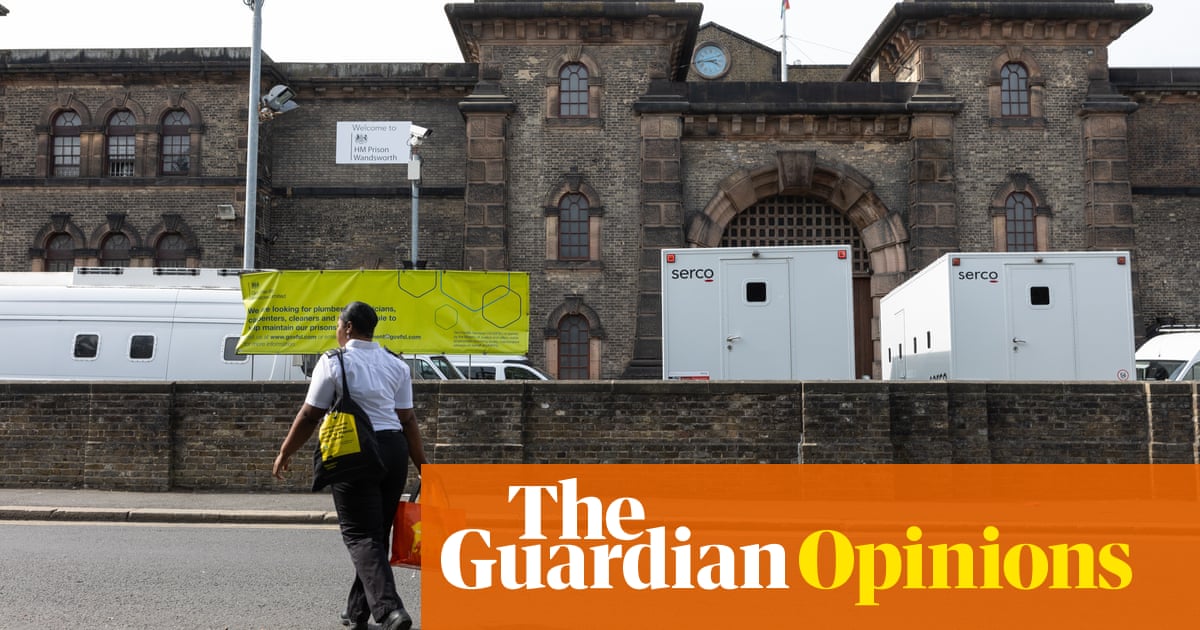
lmost a year into the pandemic, it can be easy to forget just how much power we have handed over to our governments. While the public health reasons for doing so are obvious, the danger remains that measures to limit the spread of coronavirus will shade into ways of containing populations that states find unwelcome or inconvenient.
If you want to know what that looks like, then pay close attention to the UK’s asylum system. On Friday afternoon, a serious fire broke out at the Napier barracks in Kent, one of several former military sites that were repurposed last year by the Home Office as emergency accommodation for asylum seekers. Fourteen people have been arrested in connection with the fire, which Kent police say they believe was started deliberately.
For months, charities, campaigners and some of the residents themselves have been trying to raise the alarm regarding the conditions inside these camps: there are complaints – denied by the Home Office – that access to legal advice and healthcare is delayed or obstructed, while the crowded conditions hinder social distancing. In January, a Covid outbreak spread through Napier, where several hundred men have been living in dormitories that house as many as 28 people in a single room. The outbreak sparked panic among residents, with some insisting on sleeping outdoors despite the January weather. To reduce crowding, officials moved some residents away from the barracks; the fire broke out shortly after Clearsprings, the private housing contractor that manages the site on behalf of the Home Office, told the remaining residents that there were still men on the site with Covid-19 and that they would not be allowed to leave.
The response of the home secretary was to opt for nationalist tub-thumping. Within hours of the fire, Priti Patel issued a statement condemning the damage at Napier as “deeply offensive to the taxpayers of this country”. The site, Patel continued, had previously accommodated “our brave soldiers and army personnel”, and it was “an insult to say it is not good enough”. Earlier in January, Patel’s immigration minister, Chris Philp, appeared to blame residents for the Covid outbreak, telling the Independent that it was “incredibly disappointing that prior to this a number of individuals refused tests and have been either refusing to self-isolate or follow social distancing rules”.
Yet the Home Office itself acknowledges it is using the barracks – aside from Napier, people are housed at former military sites in Wales and Norfolk – partly to make sure asylum-seekers don’t get too comfortable. The department’s own equality impact assessment of the scheme states that “less generous” support is “justified by the need to control immigration” and that better conditions would “undermine public confidence in the asylum system”.
So which is it? Are the conditions at Napier fit for British soldiers, or are they poor in order to reassure the public? The government’s rhetoric is incoherent, but it obscures a wider pattern. Emergency responses to the pandemic have been most likely to cause harm when they are applied to groups of people who are already stigmatised or discriminated against. In the spring of 2020, Roma communities in Bulgaria and Slovakia were targeted with special quarantine measures including police roadblocks and drone surveillance; a report published last autumn by the European Roma Rights Centre found “increased institutional racism and discrimination” since the beginning of the pandemic in 12 European countries.
In the Mediterranean, meanwhile, the pandemic prompted Italy and Malta to close their ports to ships that rescued migrants in distress. Europe has been cracking down on search and rescue operations for several years, but this accelerated the process, leading to several situations in which ships were stranded at sea. In September, I reported on the case of the Maersk Etienne, a commercial tanker that had been drifting for an entire month after being instructed to take part in a rescue, because no country would allow it to dock.
These damaging responses build on failures that predate the pandemic, and the UK’s asylum camps are no different. Although last year’s moral panic over boats in the Channel gave the impression of a surge in the number of people seeking asylum, the number who arrived in 2020 was roughly similar to the previous year. What’s actually happening is that the asylum system is grinding to a halt. Delays in processing people’s claims were already rising in 2019, and the pandemic has compounded this: according to the most recent government statistics, around 46,000 people are waiting more than six months for an initial decision on their asylum claim, perhaps the largest such backlog in two decades.
Today, as many as 9,500 asylum-seekers are living in temporary hotel accommodation across the UK. (Last year, a series of deaths in Glasgow prompted calls for a public inquiry.) The situation has attracted the attention of rightwing agitators. In August, the Home Office apologised for “operational failures” that led to asylum seekers being placed in a hotel in Patel’s own constituency of Witham in Essex, after Nigel Farage published a video filmed outside the hotel, prompting a rightwing backlash. Napier, along with a similar site at Penally in Wales, was opened a few weeks later.
For now, the camps house only a minority of people seeking asylum – but their use is as much symbolic as it is practical. As the Conservative former immigration minister Caroline Nokes said on Tuesday, the government is using barracks to make the UK seem “as difficult and inhospitable as possible” – a place where asylum seekers are being “segregated into a ghetto”.
This performance of immigration control has real costs. Barracks are not only a threat to the wellbeing of people forced to live there – a recent Red Cross report warned that ex-military sites were an inherently unsuitable form of accommodation for people who may have been abused or tortured before arriving in the UK; they set a disturbing new precedent. The camps should be closed before segregation becomes the norm.
Daniel Trilling is the author of Lights in the Distance: Exile and Refuge at the Borders of Europe












